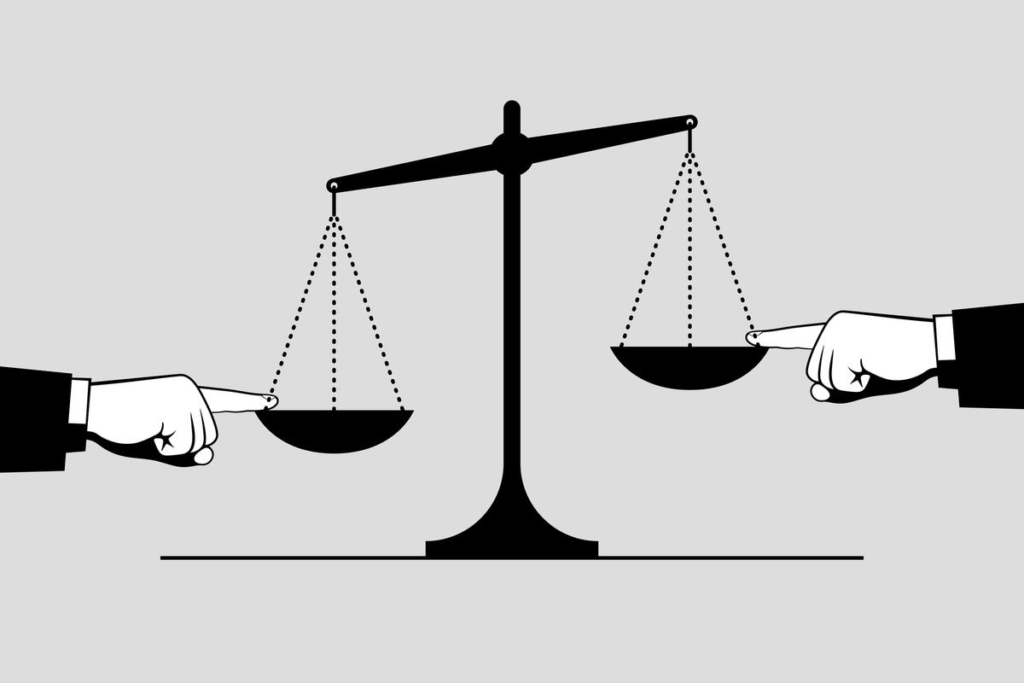Context: The character of dissent within the Indian judiciary has been a subject of extensive discussion and debate across political, social, and intellectual spheres.

Nature of Dissent in the Indian Judiciary
• Judicial dissent is a crucial element of a democratic framework, representing the plurality of perspectives and the autonomy of the judiciary.
• In India, dissenting opinions within the judiciary have significantly influenced the evolution of the legal system, often underscoring the dynamic relationship between law, politics, and society.
• The right to dissent forms a cornerstone of democracy in India and is safeguarded under Article 19(1) of the Indian Constitution.
• Its importance is evident in landmark judgments such as ADM Jabalpur v. Shivkant Shukla (1976), where Justice H.R. Khanna’s dissent highlighted the critical role of fundamental rights, even in times of emergency.
Types of Dissent
• Political Dissent: Judges sometimes voice dissenting opinions on cases with political ramifications.
• For example, in the P.V. Narasimha Rao case (1998), Justices S.C. Agarwal and A.S. Anand disagreed on the matter of parliamentary privilege and the immunity granted for accepting bribes.
• Social Dissent: Divergent judicial opinions often emerge on social matters.
• In cases like Shayara Bano v. Union of India (2017), which addressed the practice of triple talaq, dissenting judgments showcased differing views on gender equality and social justice.
• Intellectual Dissent: Judges occasionally differ due to intellectual disagreements rooted in varying interpretations of legal doctrines and principles.
• An example is Justice B.V. Nagarathna’s opinion in Lalta Prasad Vaish (2024), an industrial alcohol case, where she asserted that states lacked the authority to impose taxes on industrial alcohol.
Comparative Perspective
• In the United States, judicial dissent frequently reflects the political leanings of judges, who are appointed by the President and approved by the Senate.
• On the other hand, the Indian judiciary, operating through the collegium system, remains relatively shielded from direct political intervention, enabling a wider spectrum of dissenting views grounded in legal and intellectual reasoning.
Importance of Dissent
• Safeguarding Democracy: Dissent enables judges to articulate differing perspectives, which is crucial for the functioning of a robust democracy.
• It ensures that judicial decisions reflect diverse viewpoints, preventing the imposition of a singular perspective.
• Preventing Majoritarianism and Protecting Minority Rights: The judiciary plays a vital role in curbing majoritarian tendencies and upholding the rule of law above majority rule.
• Dissent ensures that minority perspectives are acknowledged and considered, thereby avoiding the dominance of a single viewpoint in judicial rulings.
• Enhancing Judicial Accountability: Dissenting opinions act as a mechanism for holding the majority accountable by offering alternative perspectives and exposing potential shortcomings in the majority’s rationale.
• Defending Civil Rights: Judicial dissent plays a key role in safeguarding the rights of citizens, particularly those from marginalized or underrepresented groups.
• It provides a platform to challenge majority opinions that may undermine or violate individual rights.
• Promoting Legal Discourse: Dissenting judgments enrich legal development by encouraging debate and dialogue.
• They present alternative legal interpretations, often shaping future decisions and driving legal reforms.
Concerns and Challenges
• Impact on Legal Precedents: While not binding, dissenting opinions can significantly shape future legal interpretations and reforms.
• They offer alternative perspectives that may eventually drive meaningful changes in the law.
• Social and Intellectual Divergences: Judicial dissents in India often stem from varying social and intellectual viewpoints.
• For instance, in the Shayara Bano case (2017), Justices Khehar and Nazeer dissented, contending that triple talaq was a fundamental aspect of Sunni personal law.
• Public Perception and Trust: A high frequency of dissenting opinions might influence how the public perceives the judiciary’s coherence and neutrality.
• This could lead to concerns about the consistency and dependability of judicial rulings.
Conclusion
• The character of dissent within the Indian judiciary highlights the intricacy and depth of India’s legal framework.
• It emphasizes the significance of judicial autonomy and the critical role dissent plays in nurturing a thriving and dynamic democratic system.
• As the nation progresses, judicial dissent will continue to be a fundamental pillar of its legal and democratic structure, ensuring that diverse perspectives are acknowledged and valued.

